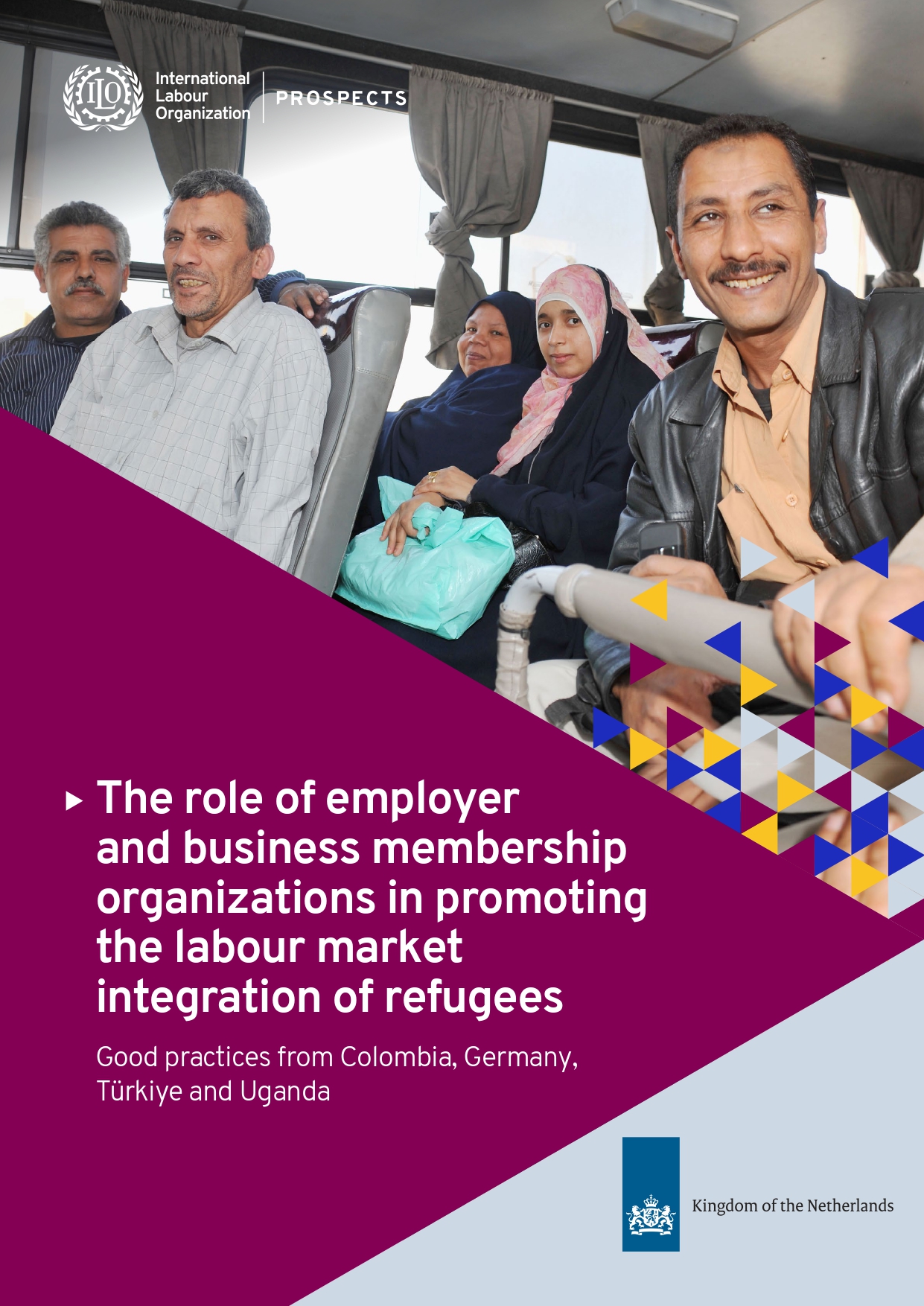Türkiye
The content of the brief was developed through a two-fold approach: first, a global stocktaking exercise of relevant EBMOs’ experiences was undertaken, covering Colombia, Denmark, Ecuador, Egypt, France, Germany, Italy, Jordan, Türkiye and Uganda. Second, based on the depth of information available and the diversity of displacement crises, four countries were selected – Colombia, Germany, Türkiye and Uganda – to develop country-specific case studies with an overview of the displacement context and the displacement response of EBMOs, and a conclusion that summarizes the good practices of EBMOs from around the world.
These are organized into six themes:
(1) advocating for evidence-based policies;
(2) making the business case for hiring and working with refugees;
(3) matching refugee labour with employers’ needs;
(4) providing employers with legal and human resource support;
(5) publicly recognizing employers’ good practices; and
(6) engaging with development cooperation partners.
Skills mismatch problems in the labour market have been widely recognized by both current literature and policymakers. Skills mismatch indicators inform policies to improve the matching between labour demand and labour supply, making labour markets more efficient and reducing the wage penalties due to over-education or other types of mismatches. The skills mismatch indicators have been measured, so far, only for a limited number of the European Training Foundation (ETF) partner countries and they are not always comparable. This report provides an update and an extension of the work which has already been done to measure skills mismatch in ETF partner countries. The analysis following the choice and the construction of skills mismatch indicators provides a timely overview of this labour market issue which will be important for governments, stakeholders, and other stakeholders to shape future labour market policies.

